Special Report
Brands That Will Disappear in 2019

Published:
Last Updated:

Operating a profitable and successful brand requires constant work and attention to all facets of business, as well as managing challenges from within and without. Brands can be vulnerable to a number of issues, from mismanagement, to corruption, and a new technology that renders the brand obsolete. Often, a public relation fiasco can contribute to a brand’s demise.
Each year, 24/7 Wall St. identifies brands we predict will disappear in the coming year. Some of these brands have already announced plans to shutter operations in 2019. Others are trying to stay afloat, but their financial performance leaves little hope that the company will still be operational come 2020.
Not every brand on this list is an abject failure. Some are merging or being acquired by other companies in the hopes they can revive the brand under new management. Others have been successful for a while, but their parent companies are pivoting away from that brand to focus efforts elsewhere.
In many cases, companies have wildly overestimated how popular or valuable a brand would be. MoviePass provided a subscription service for moviegoers to see virtually all the films they wanted in theatres in the hopes that kind of data would be valuable to movie studios and distributors. Yet MoviePass parent company, Helios and Matheson Analytics, ended up spending hundreds of millions of dollars on the project with little to show for it. At the beginning of 2018, Helios stock was traded at over $1,800 a share. Now, it is worth less than 2 cents.
24/7 Wall St. reviewed media reports, financial statements and predictions, and company press releases to determine the 10 brands that will disappear in 2019. The brands on this list include vehicles, retailers, media companies, consumer electronics, airlines, and tech companies.
Click here to see the brands that will disappear in 2019.
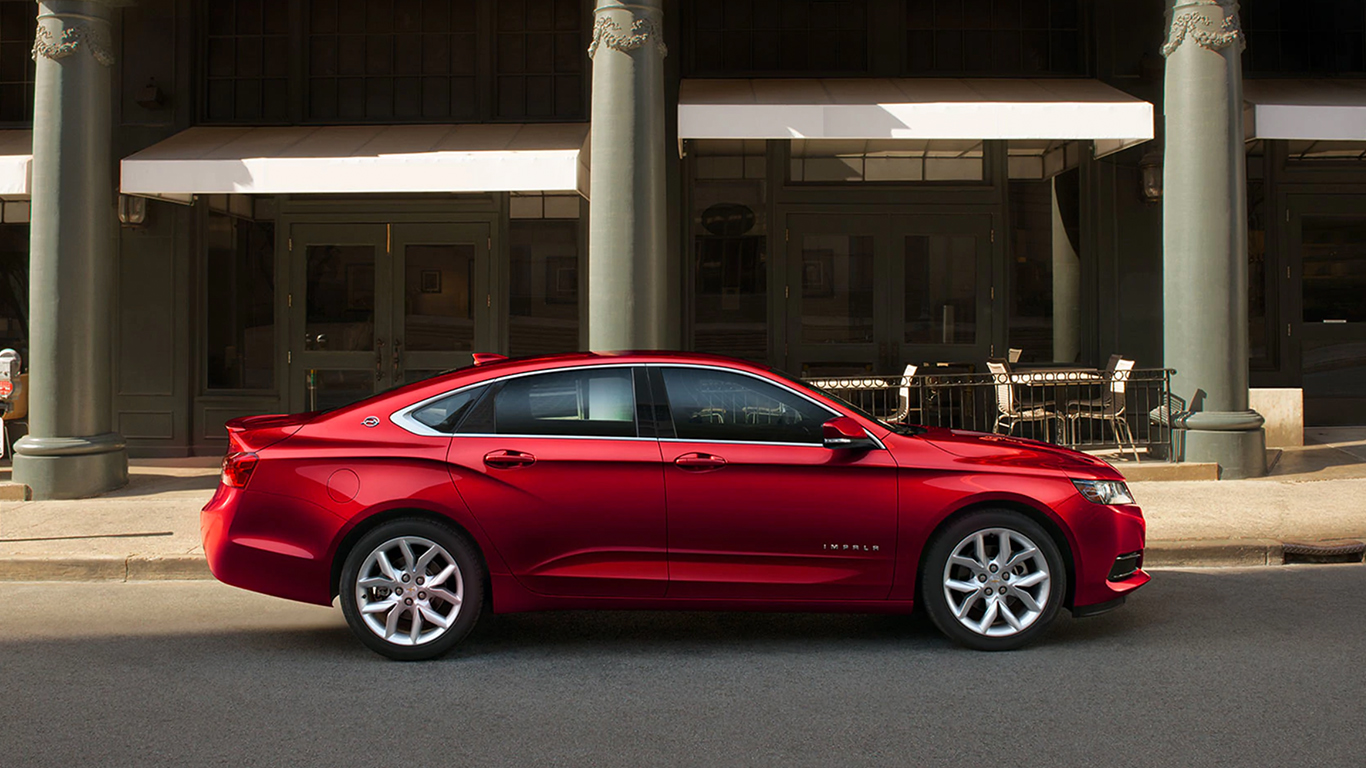
1. Chevrolet Impala
After six decades on American roads, the Chevrolet Impala will be discontinued in 2019. General Motors announced it will no longer produce the car after 2019’s fourth quarter. Chevy is also discontinuing other similar cars, like the Cruze and Volt.
These discontinuations will have a huge impact on thousands of GM workers. The company is closing down three North American assembly plants that manufacture these vehicles — one in Detroit, one in Warren, Ohio, and one in Ontario, Canada.
Americans are increasingly choosing larger vehicle styles like SUVs and crossovers over sedans like the Impala. The decision to nix Chevrolet Impala production in 2019 marks the third time the car has been discontinued. It is unclear when, if ever, the Impala will return to production.
[in-text-ad]
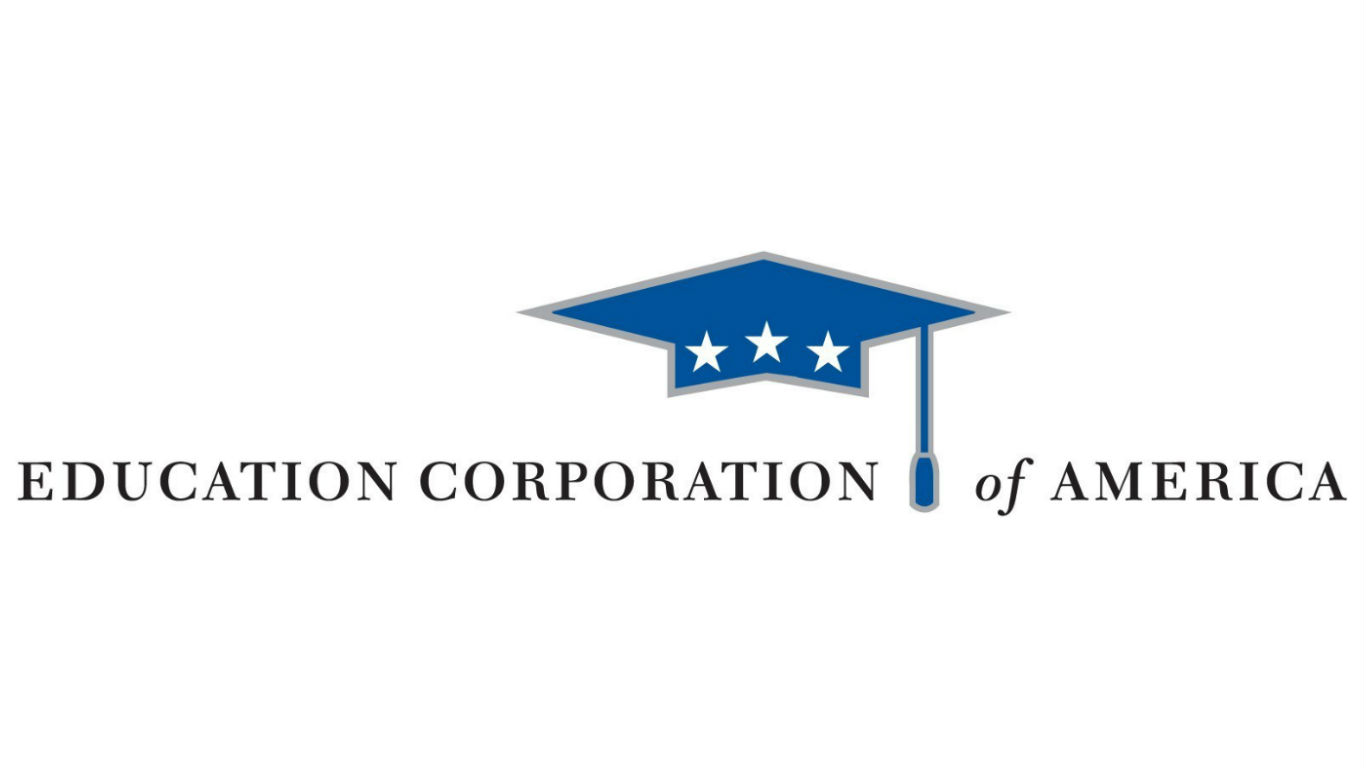
2. Education Corporation of America
Under President Barack Obama, the federal government cracked down on for-profit colleges, citing dubious sales techniques, high costs, and ineffective teacher instruction that ultimately leads to poor student outcomes. In the following years, enrollment and revenue at for-profit colleges declined substantially. Education Corporation of America, one of the largest for-profit schools, announced in December 2018 it would be closing more than 70 of its campuses in 21 states. The company cited its impending loss of accreditation and declining revenues as reasons for the closings.
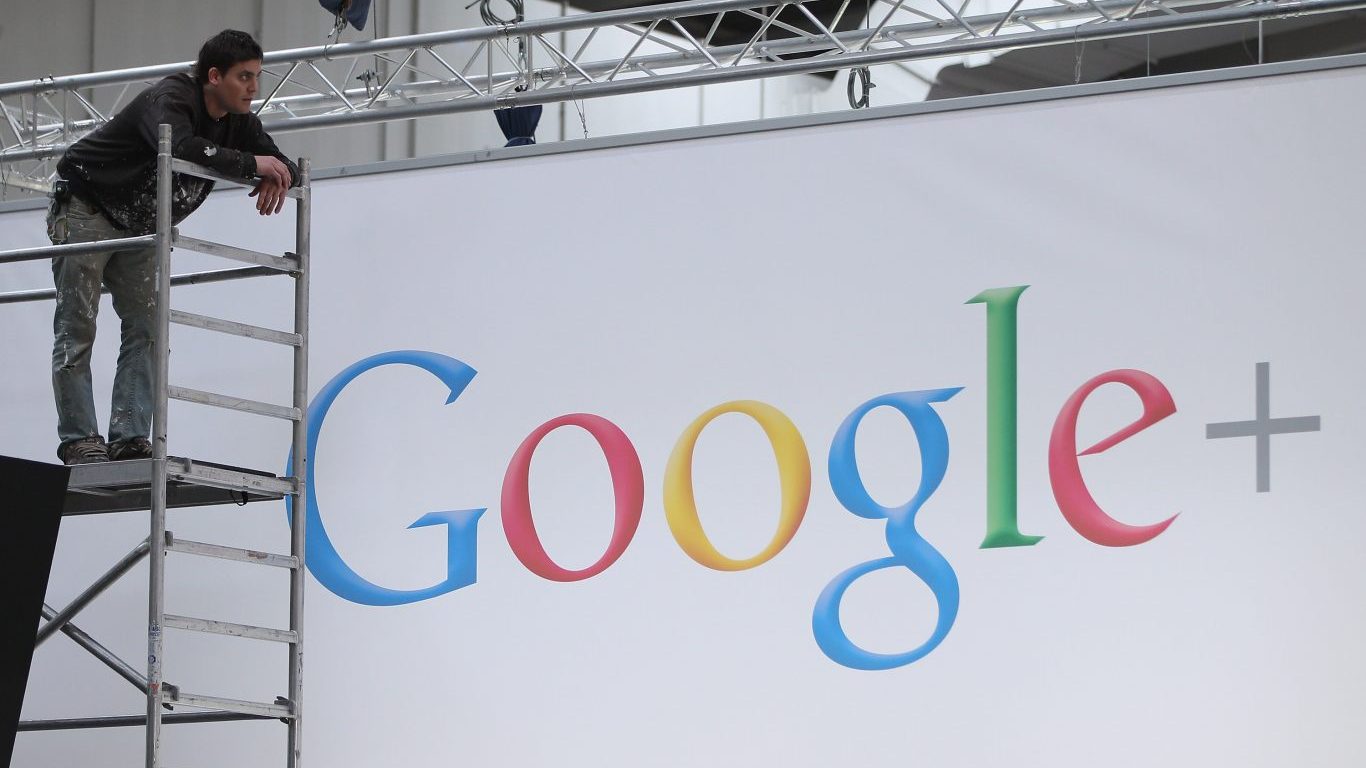
3. Google+
Google’s attempt to create its own social network, Google+, failed spectacularly almost as soon as it rolled out in 2011. The social media site was seen as a knockoff version of Facebook, and consumers were hesitant to use it. Google tried to boost its usership by forcing people to make Google+ accounts if they wanted to sign into other Google-owned properties like Gmail and YouTube, but the site never gained any traction.
Initially, Google+ was set to be officially retired on August 2019. But a bug in its API provided the information of an estimated 52.5 million users to certain apps, even if users set their accounts to private. As a result, Google accelerated the sunsetting of the social media platform to April 2019.
Google said in its announcement that it is accelerating the shutdown of the platform because of the “significant challenges involved in maintaining a successful product that meets consumers’ expectations, as well as the platform’s low usage.” Though the consumer version of Google+ is going away, companies who subscribe to Google’s G Suite will still be able to use it.

4. Henri Bendel
In September 2018, L Brands announced it plans to close all 23 of its Henri Bendel locations as well as the brand’s online operations in January 2019, citing slow sales. Luxury retailer Henri Bendel first opened in 1895, and it operates an iconic flagship store on Fifth Avenue in Manhattan.
L Brands is also the parent company of brands such as Victoria’s Secret and Bath & Body Works. In 2017, Henri Bendel accounted for less than 5% of L Brands’ net income, while Victoria Secret and Bath & Body Works accounted for more than 90%.
[in-text-ad-2]
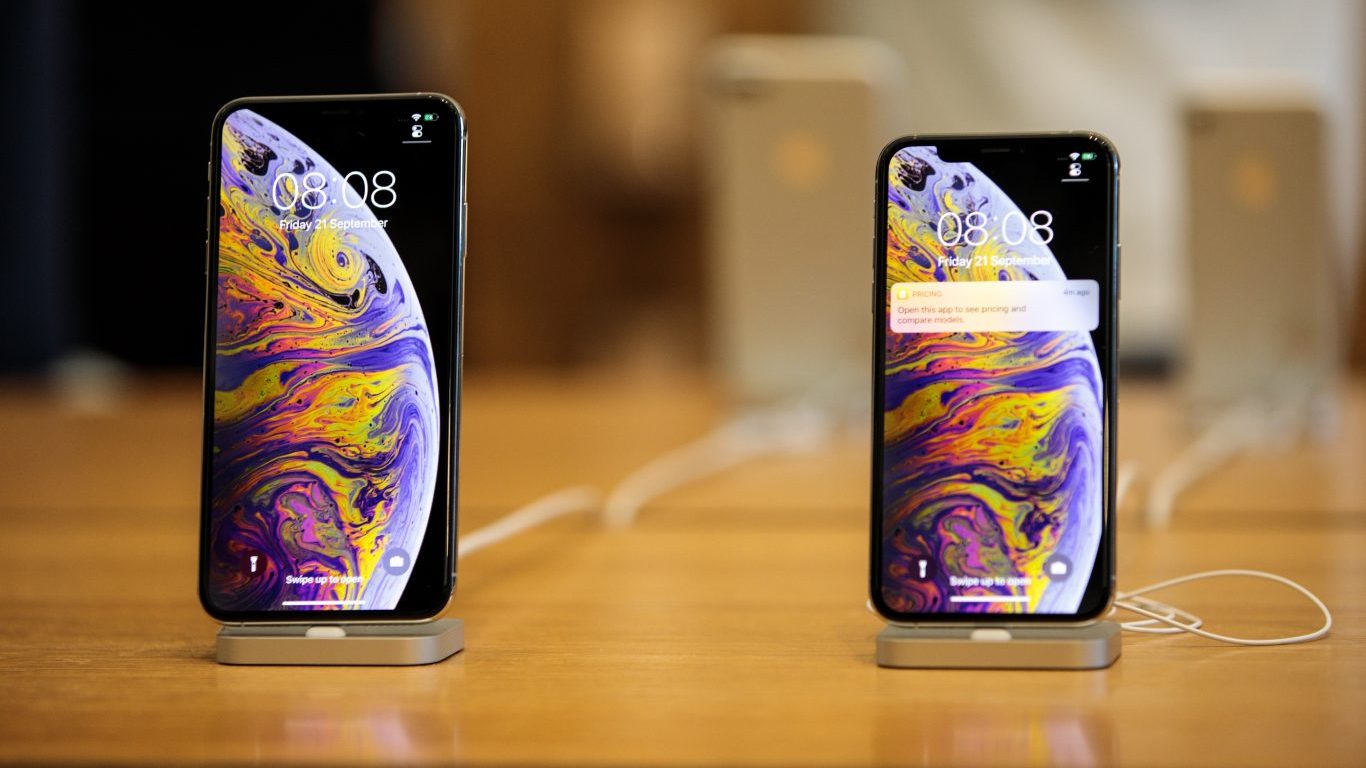
5. iPhone XS
Apple routinely phases out older iPhones that are several models behind the most recent release. Yet the iPhone XS, one of Apple’s most recent offerings, may be on the way out ahead of many of its predecessors.
Apple’s 10th anniversary iPhone, the iPhone X, was quickly discontinued after being replaced by the iPhone XR and XS. In the past, Apple simply discounted the most recent phone, but the iPhone X lacks so many of the features the XR and XS have, it may have been tough for Apple to find buyers for it — especially as it came with a higher price tag than the XR model.
Some speculate that the XS could meet the same fate if Apple continues to upgrade its phones at a similar pace in 2019.
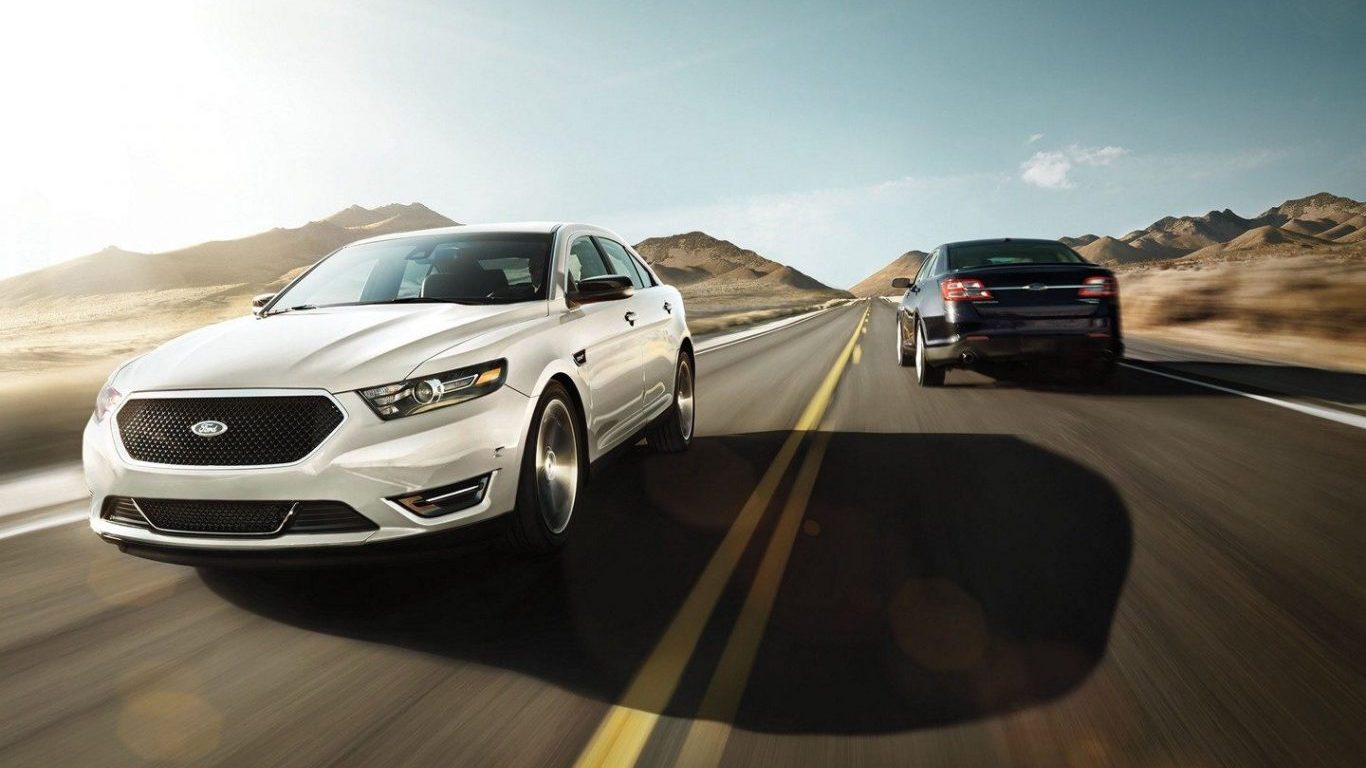
6. Ford Taurus
Once Ford’s best-selling car by volume, the Taurus is being discontinued in 2019. Larger vehicles like SUVs, crossovers, and even pickup trucks have become more fuel efficient and more viable for families. These types of vehicles have largely taken over the spot in the auto market once dominated by smaller sedans like the Taurus.
Over the past five years, Taurus sales have plummeted. In 2014, Ford sold more than 62,000 units of the vehicle. Since then, sales have dropped by thousands of units each year. Through November, Ford sold just 32,613 Tauruses in 2018.
When Ford was struggling with innovation in the 1980s, the revived Taurus nameplate reversed the company’s fortunes and became a top-seller. Now, Ford is doing away with almost all of the cars it makes. Only the Mustang will continue, alongside Ford’s lineup of trucks, crossovers, and SUVs.
[in-text-ad]

7. MoviePass
In 2017, MoviePass seemed too good to be true. The company, which allows users to see one movie per day in participating theaters, dropped its subscription price from $45 to just $9.95 a month in August of that year. Membership surged from 12,000 to more than 3 million in less than a year.
MoviePass parent company Helios and Matheson Analytics planned to sell the data on user habits to movie studios and distributors, hoping the data would be worth more than the company was losing on the subscriptions — MoviePass was essentially providing free movie tickets to subscribers. However, this proved to be a poor strategy as the company is now bleeding money. Helios reported a $129.6 million loss in third quarter of 2018.
Helios’ stock price has been in free fall all year. At the beginning of 2018, Helios was worth more than $1,800 per share. As of December 20, a share was worth 2 cents. The company is now under investigation by the New York Attorney General’s office after facing accusations that it misled shareholders and withheld information from its board.
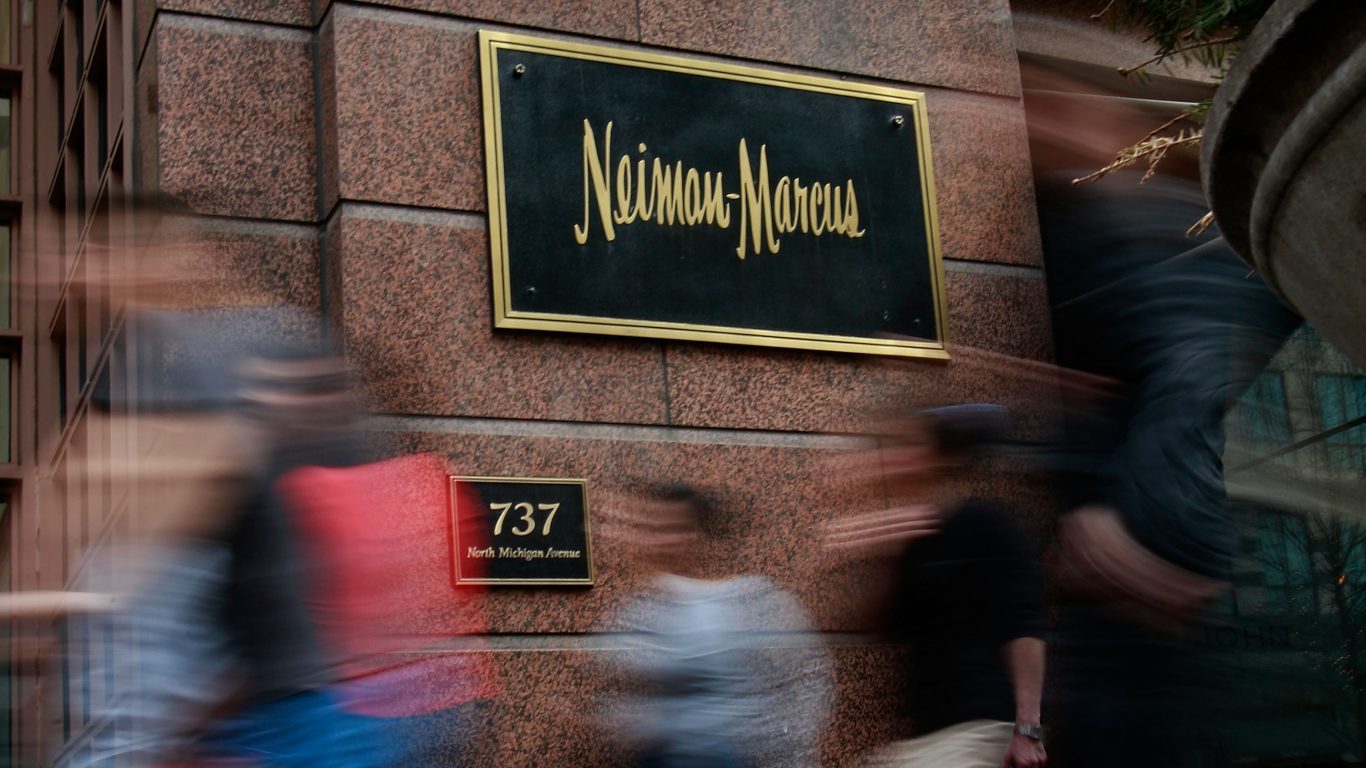
8. Neiman Marcus
Traditional department stores have struggled to stay afloat, and Dallas-based Neiman Marcus is among those struggling the most. The company survived two leveraged buyouts in the last decade, but its interest payments alone — $307 million in 2017 — has kept it in the red.
Neiman Marcus sales have steadily risen since 2017, but its large amount of debt casts doubt on the retailer’s continued survival. Financial evaluator CreditRiskMonitor reported in early 2018 that Neiman Marcus had a risk of bankruptcy of as high as 50%.
Neiman Marcus has been forced to cut hundreds of jobs as it tried to restructure its roughly $5 billion in debt. The company insists it has “ample runway” to refinance its debt, but it has been a struggle.
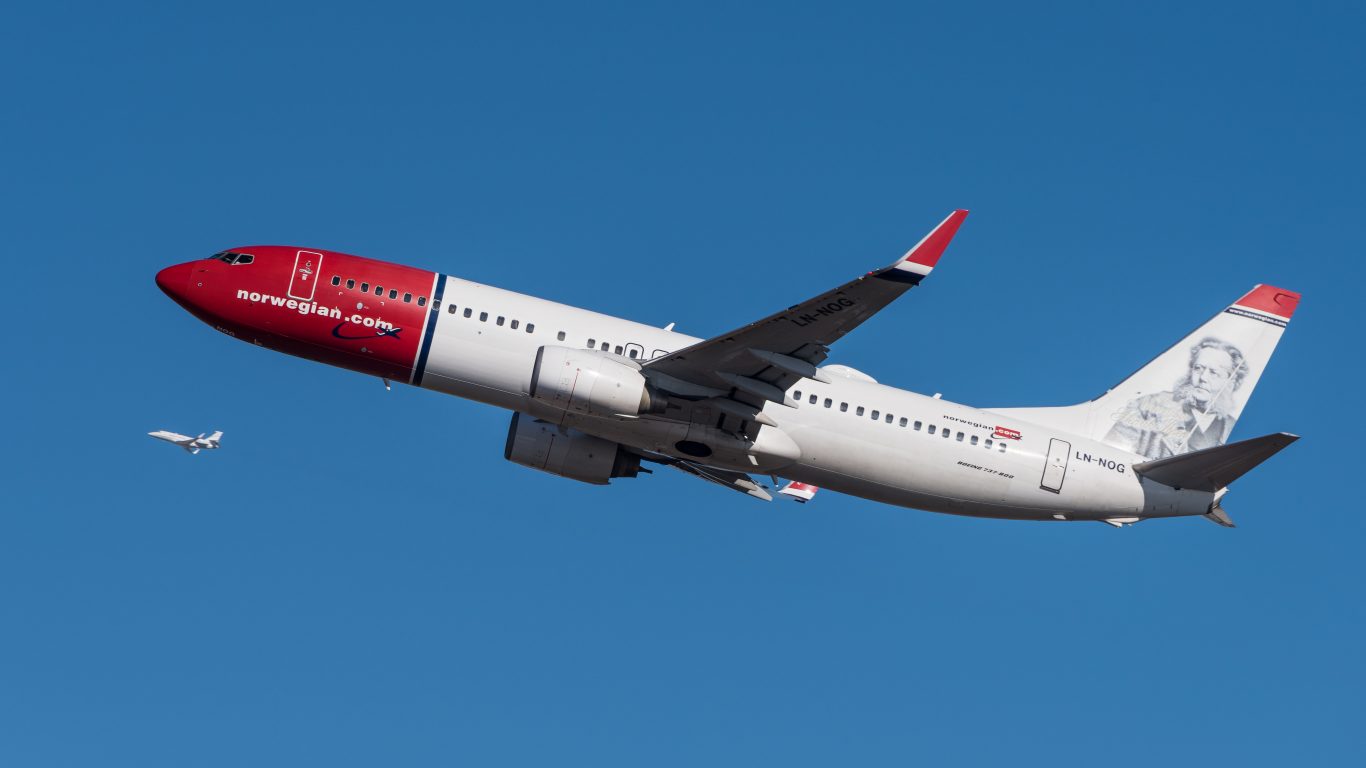
9. Norwegian Air
Norwegian Air has tried to adopt the low-cost model used by airlines like Ryanair and apply it to longer, transatlantic flights. While this approach is disrupting the industry of long-haul flights, it remains to be seen how long the carrier can keep this up. Acquiring new planes has saddled the airline with a large debt problem.
Norwegian newspaper DN reported earlier this month that Norwegian Air may face a crisis if it is unable to inject any new capital into the company by the end of 2018. Creditors could force the airline to sell off many of its planes. International Airlines Group made a bid for the company earlier in 2018, but Norwegian Air rebuffed the offer.
The airline has faced some operational issues at the end of 2018. A new Boeing 737 is stranded in Iran after an emergency landing, as sanctions prevent U.S.-based Boeing from sending replacement parts to Iran.
[in-text-ad-2]
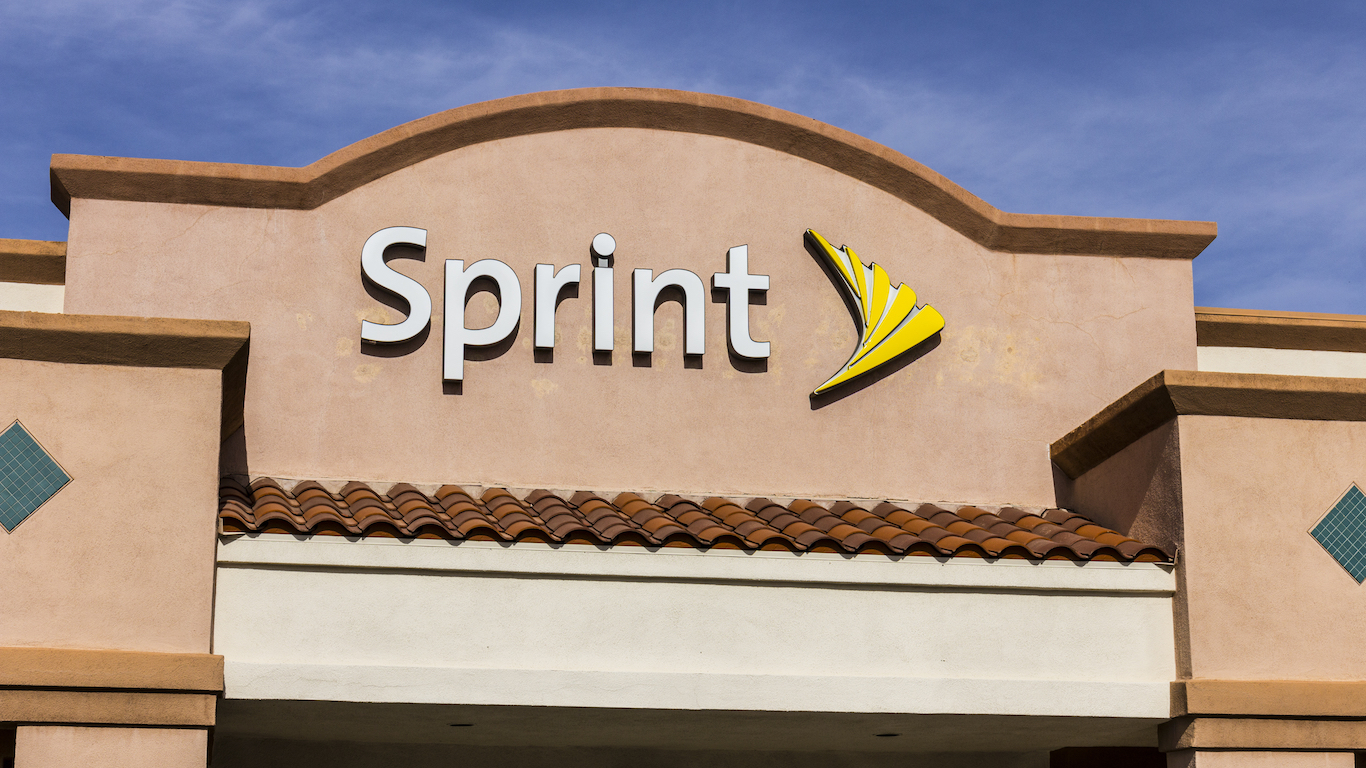
10. Sprint
Sprint is aiming to merge with T-Mobile in the hopes that the newly combined mobile carrier, which will keep the name T-Mobile, will be able to compete with the two largest carriers in the United States — AT&T and Verizon.
The merger is close to clearing the numerous legislative and regulatory hurdles needed. The Committee on Foreign Investment in the United States recently approved the deal, and the Departments of Justice, Homeland Security, and Defense withdrew their requests to delay the deal. The last major snag comes from the Federal Communications Commission, which paused the deal as it continues to review the potential implications.
The merger, worth about $26 billion, is expected to close in the first half of 2019. If the deal goes through, the Sprint brand will not survive.
Thank you for reading! Have some feedback for us?
Contact the 24/7 Wall St. editorial team.